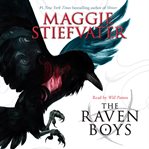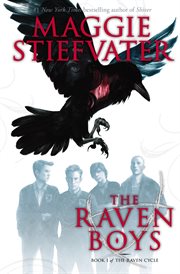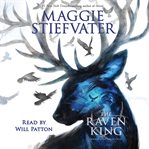Review by New York Times Review
MUCH of the drama of adolescence - the thrill of it, the pain - is about disengaging from family and finding that connection again, often elsewhere and in a completely different form. This simultaneous rejection of and yearning for human bonds is at the heart of Maggie Stiefvater's latest novel, "The Raven Boys," a well-paced neo-Gothic thriller about a teenage fivesome's search for the supernatural . . . and themselves. Though the title suggests a male focus, the book's most relatable (and reliable) character is a girl, 16-year-old Blue Sargent, the youngest member of a colorful matriarchy of small-town Virginia psychics. Unlike other heroines of young adult literature, who seem to regard boys with apathy, amusement or desire, Blue sees members of the opposite sex as opponents. Her rules, she says, are to "stay away from boys, because they were trouble," specifically boys at the local prep school, "because they were bastards." As the past tense of that previous passage - not to mention conventional narrative wisdom - suggests, Blue doesn't stay away from boys for long. In the midst of an extrasensory ritual with a visiting super-psychic relative named Neeve, she has a vision involving a young man named Gansey, who she later learns is a student at nearby Aglionby Academy, an Ivy League conduit and finishing school for the privileged (not to mention the exclusively white - Stiefvater's book is strangely devoid of people of color). At first, both Blue and the reader are put off by Gansey and his fellow prep-schoolers. Stiefvater amusingly skewers the arrogance and entitlement of these 1 percenters, questioning their basic usefulness: "The trust funds from their fathers had ensured that neither of them had to work for a living, ever, if they didn't choose to," she writes. "They were extraneous parts in the machine that was society." We soon learn, however, that these boys, these particular Raven Boys - as they are called, after Aglionby's mascot - are more than the sum of their "sharknosed" BMWs and summers abroad. They are on a mission to unearth a long-dormant path of energy under which lies a sleeping Welsh king who might help them save the world. (Sounds complicated? It is.) Although Blue has not been blessed with her family's gift for extrasensory insight, she has a talent for amplifying the energies and auras of others, and with the Raven Boys she finds herself not only accepted but appreciated. ("Blue never grew tired of feeling particularly needed, but sometimes she wished needed felt less like a synonym for useful.") Stiefvater, who has an assured and entertaining way with language, doesn't talk down to her readers, and she ably blends the mystical and the earthly, the primitive and the contemporary in a way that brings to mind the work of John Bellairs, J. K. Rowling, Lois Duncan and Stephenie Meyer. (As in Meyer's "Twilight" series, one of the primary plotlines here is the promise of a doomed love affair.) But Stiefvater's respect for her readers' intelligence - not to mention her obvious fascination with the archaic and the occult - sometimes gets in the way of her ability to tell a coherent story: with all the tarot card readings and scryings and dowsings, it's hard to know which way is up. Perhaps most glaringly, the book's one true antagonist is never fully fleshed out, which undermines the stakes Stiefvater has worked so hard to raise. But no matter how many befuddling scenes involving ley lines, Latin-speaking trees and sacrifices in haunted forests the author throws at us, "The Raven Boys" always comes back to family. And her depictions of how the normal and not-so-normal tensions within biological broods offer opportunities for the creation of different, perhaps more rewarding, relationships outside them, will be familiar to many. Ravens, after all, are symbols not only of the occult but of fierce allegiance. Just ask a certain someone imagined by Edgar Allan Poe. Anna Holmes is the founder of Jezebel .com and the editor of "Hell Hath No Fury: Women's Letters From the End of the Affair."
Copyright (c) The New York Times Company [November 11, 2012]



